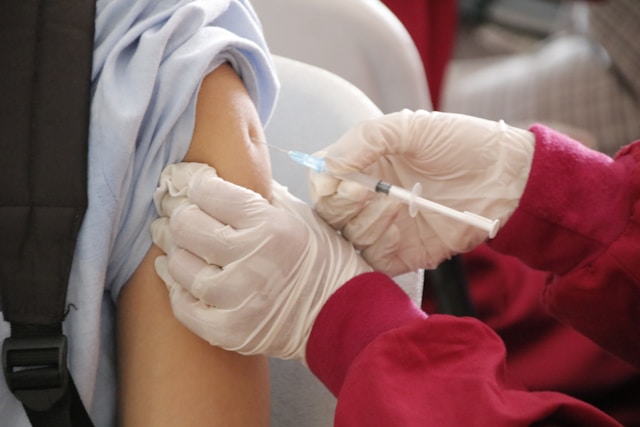Researchers in the UK have created a new vaccine to combat various coronaviruses, including potential future threats. This proactive strategy, termed “proactive vaccinology,” aims to pre-emptively defend against future pandemics.
New vaccine addresses eight diverse coronaviruses
The novel vaccine, featured in the journal Nature Nanotechnology, trains the immune system to identify common genetic material present in eight diverse coronaviruses, encompassing SARS-CoV-1, SARS-CoV-2 (responsible for COVID-19), and others existing in bat populations with zoonotic transmission potential. Significantly, these targeted viral segments are shared among various related coronaviruses not directly covered by the vaccine.
Consider this analogy: numerous variations of the coronavirus exhibit overlapping components, spanning from strains responsible for mild colds to the severe COVID-19. The novel vaccine targets these common elements, implying that even against prospective coronavirus strains, the vaccine could potentially confer protection by targeting these shared components.
Rory Hills, a graduate researcher affiliated with the Department of Pharmacology at the University of Cambridge said that their primary objective revolves around developing a vaccine aimed at safeguarding against future coronavirus outbreaks. Hills emphasized in a press statement the urgency to have this vaccine prepared prior to the onset of any pandemic. The team has successfully formulated a vaccine offering immunity against a diverse spectrum of coronaviruses, encompassing even those strains that remain unidentified.
Novel vaccine lacks SARs-CoV-1 virus
Surprisingly, although the vaccine lacks the SARS-CoV-1 virus associated with the 2003 SARS epidemic, it elicited an immune reaction against said pathogen during trials.
Professor Mark Howarth of the University of Cambridge’s Department of Pharmacology and senior author of the study emphasizes the importance of proactively developing vaccines for future coronaviruses. He suggests that since they have sufficient knowledge about coronaviruses and immune responses, they can begin creating protective vaccines against unknown strains.
Despite the success in producing effective COVID vaccines during the last pandemic, there were still significant challenges and casualties. Hence, there is a need to improve vaccine development strategies, with a key aspect being the pre-emptive creation of vaccines.
The vaccine elicited a comprehensive immune response, even in mice previously vaccinated against SARS-CoV-2, indicating its potential as a universal booster shot.


